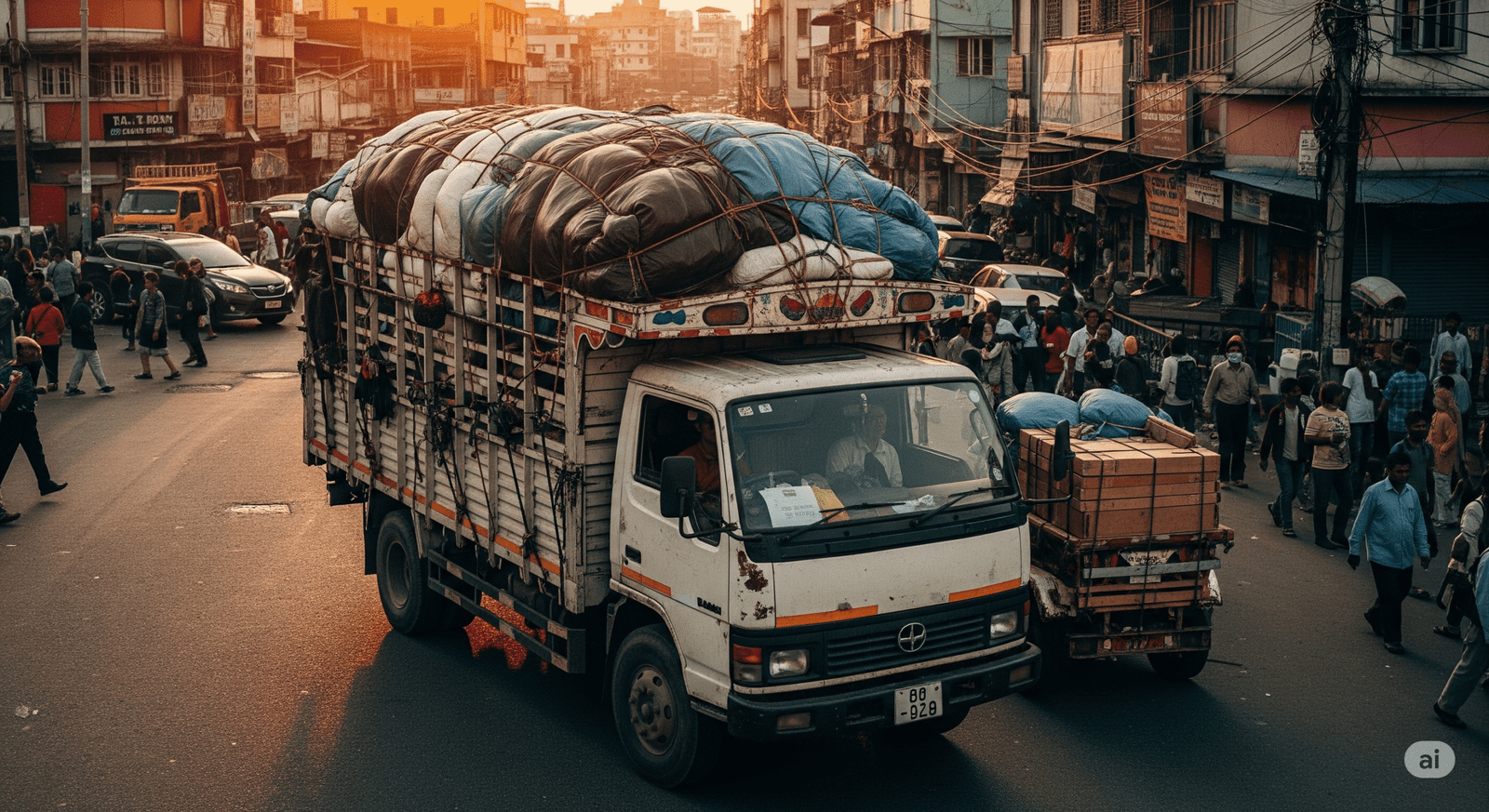Growing up in India, I’ve always had a fascination with roads. Not just the destinations, but the journeys — the highways, the long queues at tolls, and the endless stream of trucks carrying the weight of India’s economy on their axles. But over time, I’ve also come to notice a darker side of this picture: overloaded trucks. What once seemed like a sign of bustling commerce now feels like a persistent barrier to development.
The Hidden Cost of Extra Tons
I still remember a road trip to Himachal Pradesh — we were delayed for hours because a truck carrying construction material had overturned. The cause? Overloading. This isn’t an isolated incident. Every day, overloaded trucks not only risk accidents but damage roads, slow down traffic, and reduce fuel efficiency, creating a ripple effect of losses — human, financial, and infrastructural.
India’s roads aren’t just passageways for vehicles — they’re arteries of commerce, lifelines of rural-urban connection. But when trucks exceed legal weight limits, it’s not just their suspensions that suffer — our national infrastructure does too.
Crumbling Roads, Wasted Crores
According to government data, nearly 40% of road damage in India is caused by overloaded vehicles. Despite crores being spent annually on highway repair and maintenance, these efforts are often undone by a few thousand kilos too many on a single axle. What could’ve been spent on expanding connectivity is instead funneled into patchwork repairs.
Overloading doesn’t just wear out roads — it increases maintenance costs for other vehicles and shortens the lifespan of trucks themselves. The irony is that in trying to increase profit margins, transporters often incur higher long-term costs, sometimes tragically paid in lives lost to preventable accidents.
⚖️ A Systemic Problem, Not Just a Legal One
Yes, India has rules. The Motor Vehicles Act prescribes clear weight limits. We have weighbridges, fines, and enforcement officers. But the problem lies in implementation and incentives.
In many parts of the country, bribes and loopholes make it easier to pay off a penalty than to operate within legal limits. And logistics clients often pressurize small fleet owners to “optimize loads” to cut costs. This systemic exploitation puts ethical truckers at a disadvantage.
The Human Side of the Problem
Let’s not forget the people inside those trucks. The drivers, many of whom spend days on the road, are the unsung heroes of our economy. Overloading not only makes their jobs harder and more dangerous, but also contributes to fatigue, breakdowns, and the ever-present fear of legal trouble or accidents.
Once, while working on a logistics project in Madhya Pradesh, I met Rakesh, a 45-year-old driver. He told me, “Bhaiyya, maal zyada hai, par kya karein? Pet ka sawaal hai.” (Brother, there’s too much cargo, but what can I do? I have mouths to feed.) That statement stayed with me. Overloading isn’t just a policy failure — it’s a livelihood dilemma.
The Road to Reform
India’s economic aspirations are ambitious: becoming a $5 trillion economy, expanding exports, improving last-mile connectivity. But overloaded trucks are a drag on this vision. To move forward, we must:
- Enforce weight limits strictly across all states.
- Digitize weighbridge data to reduce corruption and manipulation.
- Offer incentives or subsidies to logistics companies that comply with safety and load regulations.
- Encourage freight-sharing platforms to maximize efficiency legally.
- Promote driver education and insurance, focusing on their rights and safety.
My Perspective
I believe that India is at a pivotal crossroads. We’ve made leaps in digital tech, fintech, and infrastructure. But something as seemingly basic as overloaded trucks still holds us back. It’s symbolic, really — we cannot move fast if our foundation is cracking under excess weight.
If we want inclusive, sustainable growth, we must pay attention to the wheels that keep India moving. For me, this isn’t just about roads or trucks — it’s about the values we assign to efficiency vs. ethics, progress vs. pressure, and growth vs. greed.
Let’s lighten the load — on our roads, on our drivers, and on the nation.

Leave a Reply